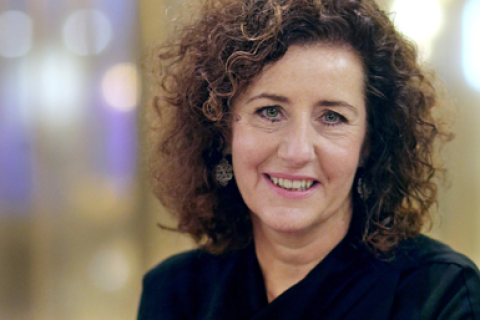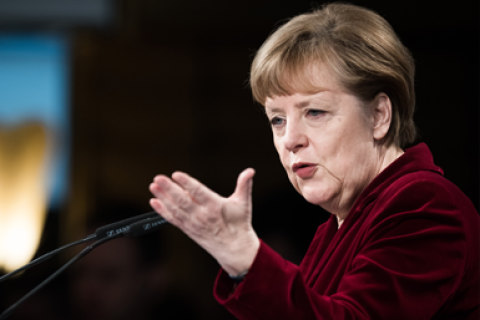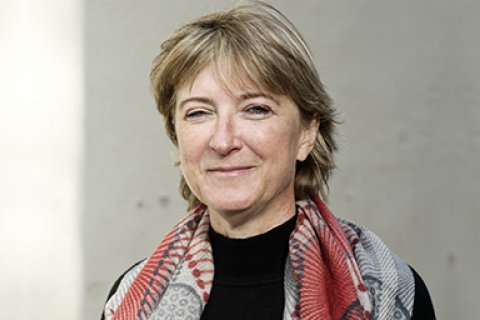"More countries are turning to hard rules regarding women in company boards"
Linda Senden, Professor of European Law and gender equality expert

The Brexit and the new German government can turn out very well for the number of women in company boards, says Linda Senden, professor of European law and expert in gender equality law.
‘It is absolutely deplorable', Minister Ingrid van Engelshoven said, when she received the Business Monitor Top Women 2017. It is that bad in the Netherlands?
“The Netherlands wants to regulate the number of women at the top, but the situation is indeed bad. The target is a share of 30 percent women on the boards of directors and on the supervisory boards of large companies in 2019. But we are not going to achieve that, if in 2017 we barely reached 11.7 percent in the boards and 16.2 percent in the supervisory boards. If we still want to achieve 30 percent by 2019, things will drastically have to change in 2018 and I do not see that happening. "
The government does not set an example in the Netherlands.
You investigated this at EU level until last month. What are important conclusions?
“More countries are turning towards hard rules regarding the number of women at the top of organisations. In almost all countries in the European Union we see that this is the only way you get more women in company boards. There are three countries where a softer approach is doing well: the United Kingdom, Sweden and Finland, but in those countries you see that they have other measures that make it easier for women to come to power."

“Companies set clear rules themselves and the government, for example, sets a good example, which is missing in the Netherlands. The statutory regulation of thirty percent only applies to the business sector, not to government. That is pretty weird. The role of the media plays a positive role in these three countries and in the United Kingdom, for example, headhunters policies are aimed at finding more women for top positions."
Why are we aiming for 30 percent?
“Research shows that the critical mass you need to influence decisions is around 30 percent. That's the moment you will feel the influence of women on the board. In the Netherlands 30 percent have been agreed on, but the EU guideline is 40 percent women on company boards and 33 percent if the legislation is also directed at the supervisory boards. But sadly... Both the Dutch House of Representatives and the Senate have reacted negatively to this EU directive. The Netherlands does not want this because it wishes to regulate this problem itself."
This project dead in the water in Brussels? I think not!
Saying: Brussels shouldn't tell us what to do?
“Yes. Unfairly, because this quotum is not mandatory. And if countries can demonstrate that they already have effective legislation themselves, they already comply with the directive. Strangely enough even Prime Minister Rutte in his recent speech at the Bertelsmann Foundation in Berlin stressed that one of the fundamental values and principles of the EU is: 'women and men are equal' and that the EU must keep its promises; "No words but deeds." However, the Dutch approach does not lead to much decisiveness for companies."
What is controversial about it?
“The ‘priority rule’. In the case of equal suitability for a top function, the preference should go to a woman. Opponents view this as incomprehensible."
Do you think the Netherlands will come about and adopt the directive?

"Yes, with the Brexit one of the great opponents from the Union is stepping out. And if the new German government, in which the SPD is responsible for emancipation issues, "turns", then most of the big countries are in favour. Then the Netherlands will no longer be able to stop the directive. Some people think this issue is dead in the water in Brussels. I don't think so!"
The opposition in the Netherlands is pushing for a bill for equal pay for men and women. Organizations with more than fifty employees should have to prove that equal pay is paid for equal work. What do you think of that?
“This is very good. My colleague Albertine Veldman has recently worked on a EU report on pay transparency This can trigger women to address inequality in salary. The European rules regarding transparency on pay has existed for 30 years, but more action is needed. And the reversal of the burden of proof (the employer must prove that he does not discriminate against women) has also been around for a long time."
What research are you currently working on, regarding equality between men and women?
“Together with colleagues from Economics, Social Sciences, Gender Studies and Law, we study the 'Apply, explain' principle. We analyse the annual reports of large companies who do not meet the target of 30 percent women on the board. In the reports they describe which actions they have taken to comply with this rule and why it did not work. We can draw lessons from that."

Does Utrecht University set an example?
“In our three-man board (The Rector Magnificus, the Chairman and the Vice-President of the Executive Board, ed.) There is one woman. So that's thirty percent. But this not yet the case in all of the faculty boards. So there is still work to do at our university, regarding equality between men and women."

